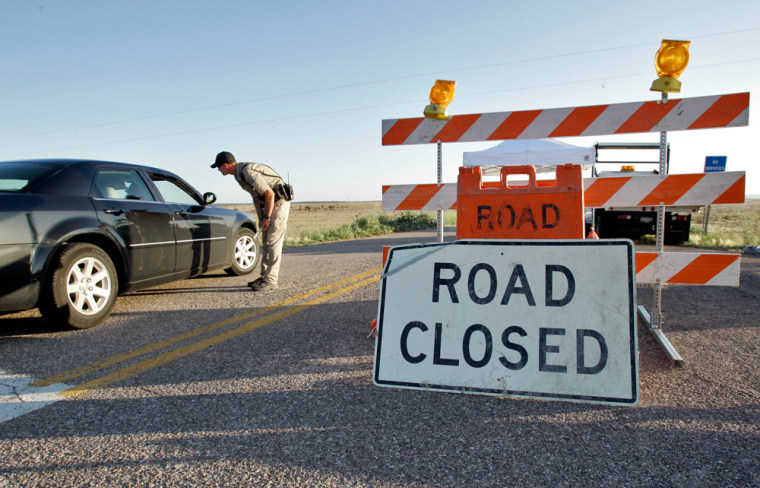It may be four weeks until tourists can return to stare as towering waterfalls cascade into blue-green pools near an American Indian village in a canyon miles west of Grand Canyon National Park headquarters.
Tourism is a lifeline of the community of Supai deep in a gorge off the main Grand Canyon that is accessible only by foot, helicopter or mule. Tribal members rise early to lead mules to the top of an eight-mile trail to bring down mail and luggage for campers in Havasu Canyon. Helicopters ferry in supplies and people who would rather not hike the rugged, winding trail.
Flooding last weekend, though, forced out the tourists the Havasupai tribe depends on to bring in revenue. Camping alone contributes more than $2 million annually to the tribe, tribal tourism director Billy Jack told The Arizona Republic.
Residents returned to the village on Wednesday, but visitors might not be allowed back in for another four weeks until trails, bridges and other damage is repaired, the tribe said on its Web site.
Tribe will recover
While those trails that lead visitors to campgrounds, waterfalls and the village have been washed out, the blue-green waters muddied, trees uprooted and some vacations were ruined, the tribe will recover as it always has, said John Lewis, director of the Inter Tribal Council of Arizona.
"They have experienced some of these natural disasters, and after a lot of hard work and support, they are able to stabilize," said Lewis, a member of the Colorado River Tribes. "That's what I think their challenge is, and they seem to continue to have met it over the years."
Most tourists who were in the canyon when the flooding hit on Saturday made their way to Supai before catching a helicopter ride to the rim. Authorities said the village appears to have sustained only minor damage from the storms and water and electric lines were intact.
The village — the only one in the country to have its mail delivered by mule train — rests well above the Colorado River tributary of Havasu Creek and includes homes, a K-8 school, a post office, a cafe, clinic and a store. High school students must leave the canyon to attend class. It is home to several hundred tribal members.
Prone to flooding
Havasu Canyon and the village of Supai have been prone to flooding over the years. Major floods occurred in 1910, 1990, 1993 and 1997, eroding the travertine that gives the water its color and changing the landscape. No one was ever seriously injured.
"The real issue is whether or not we're in a period where these floods are occurring more frequently or not," said Ted Melis of the U.S. Geological Survey in Flagstaff.
Last weekend's flooding wasn't as severe as previous floods, Melis said, but the isolation of the canyon will make it difficult to rebuild.
Stacey Hamburg, who works with the tribe on uranium mining issues, was optimistic that tourists will return soon and enjoy what she said is "one of the most beautiful, magnificent places in the world and should be seen by everyone."
Neal Haddad, of Phoenix, recalled being speechless when he and a dozen others reached Havasu Falls a few years ago after a long hike that took them through Supai village, where the tribe holds an annual peach harvest and reggae music festival.
"It really truly is among the most beautiful places on Earth," said Haddad. "When you get down by Havasu Falls, it's as though Kodak made an outdoor movie set."
But for Ferdinand Rivera, who was stranded after the weekend flood and was rescued by helicopter from the village Monday, his first visit will be his last.
"I would never go back there in my life, because if anything like that happens (again), there's no organization. There's no plan," he said.
